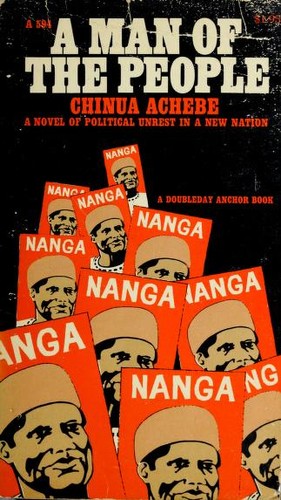Thoughts on reading A Man of the People by Chinua Achebe.

Chinua Achebe’s A Man of the People is an entertaining story pitting Odili, a young and vivacious teacher against Chief Nanga, an established and cunning political minister. The tale is filled with biting and comic political and class satire, garnished with apt proverbs (Achebe rivals Wu Ch’êng-ên’s Monkey in this regard) and finished with an intoxicating story of love and revenge.
Achebe’s main characters shine: Chief Nanga’s charisma, wisdom, greed, and promiscuity make the perfect despicable antagonist, while Odili’s energy, eagerness, knowledge and affection make a truly endearing protagonist. Yet as a great author does, Achebe solidifies his work as unimpeachable by supporting Odili and Nanga with an eclectic supporting case, placing them in a history rife with action and generational disillusionment, and contrasting the rural and urban environments to spur universal unrest.
A Man of the People’s greatness ultimately lies in its timelessness: history is rife with cycles of men with the ability to lead grasping power and maintaining that power by any means necessary, only to have that power challenged by men with nothing to lose, a powerful story to tell and a people waiting for something to hear.